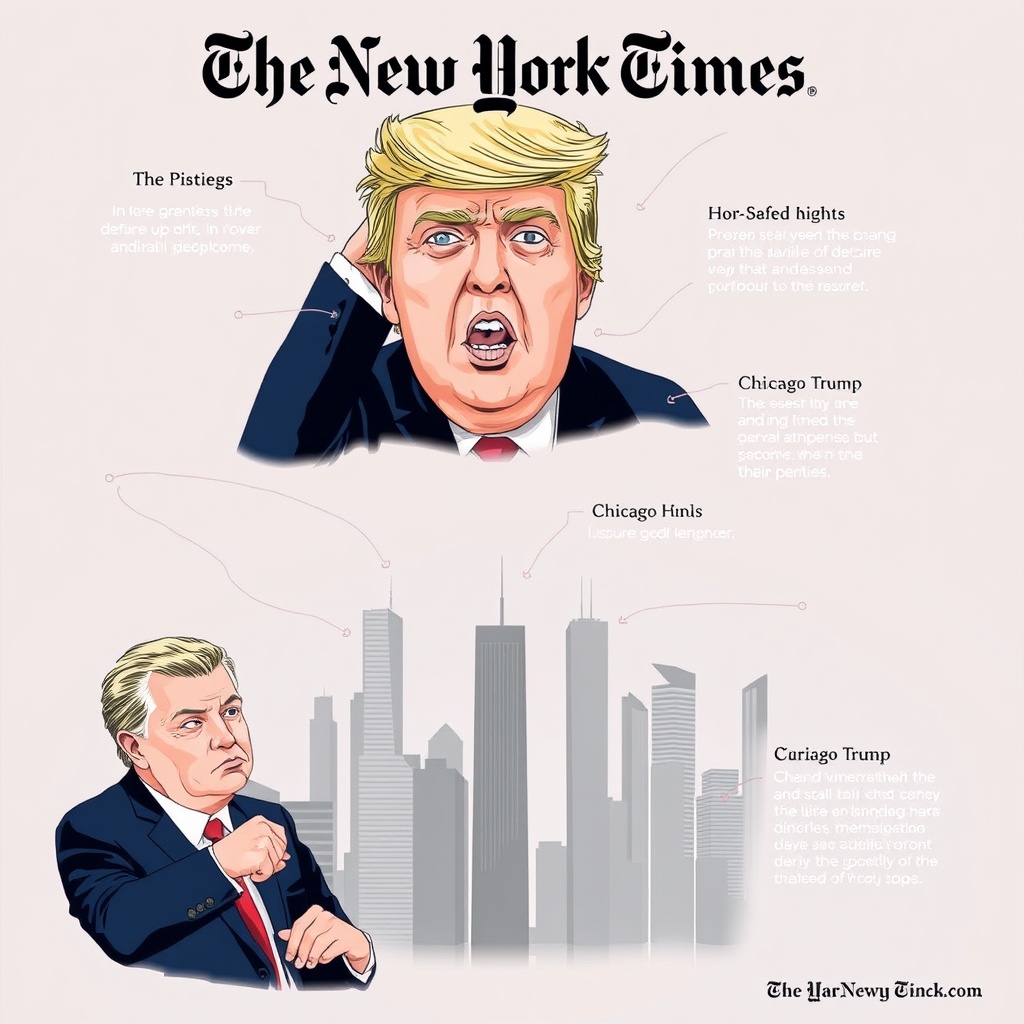Introduction
On Sunday, President Trump found himself at the center of a controversy surrounding a social media post that appeared to threaten the city of Chicago. The post, which sparked widespread concern and debate, seemed to suggest that the President was considering declaring war on the city. However, in a subsequent statement, Trump downplayed the post, claiming that his intention was not to threaten Chicago, but rather to "clean up" the city. This article will delve into the details of the controversy, examining the context and implications of Trump's statements, as well as the potential consequences of such rhetoric.
The Context of the Controversy
The controversy surrounding Trump's social media post began when he appeared to suggest that he was considering taking drastic action against Chicago. The post, which was widely shared and reported on by news outlets, sparked fears that the President was contemplating declaring war on the city. However, Trump later clarified his statement, saying that his intention was not to threaten Chicago, but rather to address the city's high crime rates and work towards finding solutions to "clean up" the city. According to the New York Times, Trump stated that he wants to help Chicago, citing the city's high murder rates and saying that "we need to do something about it."
The context of the controversy is important, as it highlights the ongoing debate about crime and violence in Chicago. The city has struggled with high crime rates in recent years, with a significant increase in homicides and shootings. In 2020, Chicago experienced one of its most violent years on record, with over 700 homicides. The city's crime rate has been a major concern for residents, law enforcement, and politicians, with many calling for increased efforts to address the root causes of violence and improve public safety.
The Implications of Trump's Statements
Trump's statements about Chicago have significant implications, both for the city and for the country as a whole. The suggestion that the President is considering declaring war on a major American city is alarming, and raises concerns about the potential consequences of such rhetoric. The use of military force against a domestic city would be unprecedented, and would likely have severe and far-reaching consequences.
Furthermore, Trump's statements have been criticized for perpetuating negative stereotypes about Chicago and its residents. The city has long struggled with issues of poverty, racism, and inequality, and Trump's comments have been seen as exacerbating these problems. By framing Chicago as a city that needs to be "cleaned up," Trump's statements have been criticized for ignoring the complex social and economic issues that contribute to crime and violence.
According to a report by the University of Chicago, the city's high crime rates are linked to a range of factors, including poverty, lack of access to education and job opportunities, and systemic racism. The report highlights the need for a comprehensive approach to addressing crime and violence, one that takes into account the complex social and economic factors that contribute to these problems. Trump's statements, however, have been criticized for oversimplifying the issue and ignoring the need for a nuanced and multifaceted approach.
The Potential Consequences of Trump's Rhetoric
The potential consequences of Trump's rhetoric are significant, and could have far-reaching implications for the city of Chicago and the country as a whole. The use of military force against a domestic city would be a drastic and unprecedented step, and would likely have severe and long-lasting consequences.
Furthermore, Trump's statements have the potential to exacerbate existing social and economic problems in Chicago. By perpetuating negative stereotypes about the city and its residents, Trump's comments could contribute to a climate of fear and mistrust, making it more difficult to address the complex issues that contribute to crime and violence.
In addition, Trump's statements have been criticized for undermining the relationship between law enforcement and the communities they serve. The use of military force against a domestic city would likely damage trust between law enforcement and the public, making it more difficult to build the partnerships and collaborations needed to address crime and violence.
According to a report by the National Institute of Justice, building trust between law enforcement and the public is critical to addressing crime and violence. The report highlights the need for police departments to engage in community policing, building relationships with residents and working to address the social and economic factors that contribute to crime. Trump's statements, however, have been criticized for undermining these efforts, and for perpetuating a climate of fear and mistrust.
Conclusion
In conclusion, the controversy surrounding Trump's social media post about Chicago highlights the ongoing debate about crime and violence in the city. While Trump's statements have been criticized for perpetuating negative stereotypes and ignoring the complex social and economic factors that contribute to crime, they also highlight the need for a comprehensive approach to addressing these issues.
To address the high crime rates in Chicago, it is essential to take a nuanced and multifaceted approach, one that takes into account the complex social and economic factors that contribute to crime and violence. This includes investing in community policing, building partnerships between law enforcement and the public, and addressing the root causes of poverty, racism, and inequality.
Ultimately, the controversy surrounding Trump's statements about Chicago serves as a reminder of the need for thoughtful and informed leadership, leadership that prioritizes the well-being and safety of all Americans. By working together to address the complex issues that contribute to crime and violence, we can build a safer, more just, and more equitable society for all. As the city of Chicago continues to grapple with the challenges of high crime rates, it is essential that we prioritize a comprehensive and nuanced approach, one that takes into account the complex social and economic factors that contribute to these problems. Only through such an approach can we hope to build a brighter, safer future for the city and its residents.


Leave a comment